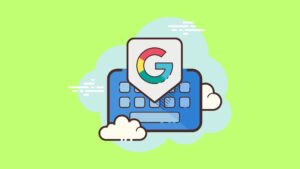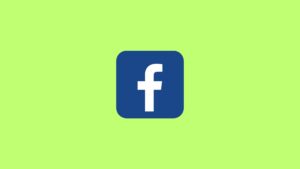Two Advertising Powerhouses, But Which One Is Right For Your Business?
Any business owner knows how important it is to reach potential customers and generate leads. Online advertising can be an effective way to do this, but with so many options available, it can be challenging to determine which method is best for your business. One of the biggest challenges facing small business owners is limited advertising budgets. As a result, it’s crucial to choose an advertising method that is cost-effective and provides the highest return on investment (ROI).
As digital advertising has become an integral part of modern-day marketing, businesses are faced with a critical decision: which type of advertising to choose? PPC and Facebook Ads are two of the most popular options, each with its unique advantages and disadvantages.
In this article, we’ll examine the key differences between PPC and Facebook Ads and help you determine which one is the right choice for your business.
What are Google Ads
Google PPC advertising is a form of online advertising where advertisers pay each time a user clicks on one of their ads. These ads can be displayed on search engine results pages, as well as on websites and social media platforms. The most popular PPC advertising platform is Google Ads, which displays ads on the Google search engine results page and on websites that are part of the Google Display Network.
One of the key benefits of PPC advertising is that it allows advertisers to target their ads to specific keywords and demographics, which can result in a higher conversion rate. PPC ads also tend to be highly visible and appear at the top of search engine results pages, which can increase brand awareness.

What are Facebook Ads?
Facebook Ads are a form of online advertising that appear on the Facebook platform, as well as on Instagram and other partner websites. Facebook Ads allow advertisers to create and display ads to a highly targeted audience based on factors such as age, gender, location, interests, and behavior. Advertisers can choose from a variety of ad formats, including image, video, and carousel ads.
One of the key benefits of Facebook Ads is that they allow advertisers to target their ads to a very specific audience, which can result in a higher conversion rate. Facebook Ads also tend to be less expensive than PPC ads, which can make them a more cost-effective option for businesses with a limited advertising budget.
Now that we’ve covered the basics of PPC and Facebook Ads, let’s take a closer look at the pros and cons of each advertising method.
Pros of PPC Advertising:
- High-intent audience: Users who search for specific keywords on Google are usually actively looking for a product or service, making them more likely to convert.
- Control over ad placement: PPC ads appear at the top of search engine results pages, which can increase brand awareness. You can also choose where and when your ads appear, giving you greater control over who sees your ads.
- Easy to measure ROI: PPC advertising allows you to track the performance of your ads and measure the return on investment (ROI) of your campaigns.
- Highly targeted advertising: PPC advertising allows advertisers to target their ads to specific keywords and demographics, which can result in a higher conversion rate.
- Measurable results: PPC advertising platforms provide detailed analytics and reporting, which makes it easy to track the effectiveness of your ads and adjust your strategy accordingly.
Cons of PPC Advertising:
- High cost: The cost of PPC advertising can be high, especially if you’re targeting competitive keywords.
- Learning curve: PPC advertising requires a significant amount of knowledge and skill to execute effectively, and it can take time to understand how to create effective ads and optimize your campaigns.
- Limited reach: PPC ads only appear on search engine results pages and websites that are part of the Google Display Network, which can limit your reach.
Pros of Facebook Ads:
- Lower cost: Facebook Ads tend to be less expensive than PPC advertising, making them a more cost-effective option for small businesses.
- Wide range of ad formats: Facebook offers a range of ad formats that can be customized to suit your business’s needs, from image ads to video ads and more.
- Highly targeted advertising: Facebook Ads allow advertisers to target their ads to a highly specific audience based on demographics, interests, and behavior making it easier to reach your ideal audience.
- Wide reach: Facebook has over 2 billion active users, which means that businesses can reach a large audience with their ads.

Cons of Facebook Ads:
- Low visibility: Facebook Ads can be less visible than PPC ads, which can make it difficult to increase brand awareness.
- Lower intent audience: Facebook users may not be actively searching for products or services, which can result in a lower conversion rate.
- Ad fatigue: With so many businesses using Facebook Ads, it can be challenging to make your ads stand out and avoid ad fatigue.
- Limited control over ad placement: Facebook determines where your ads are placed on the platform, so you have less control over who sees your ads.
Google PPC vs Facebook Ads: Which is Better for Your Business?
Choosing between PPC and Facebook Ads depends on several factors, including your business goals, target audience, and budget. Here are some key considerations to keep in mind:
- If you’re looking to target high-intent users actively searching for your product or service, PPC advertising is likely the better option.
- If you’re looking to reach a broader audience and build brand awareness, Facebook Ads may be a better fit.
- If your budget is limited, Facebook Ads tend to be less expensive than PPC advertising, making them a more cost-effective option for small businesses.
Ultimately, the best way to determine which type of advertising is right for your business is to test both options and see which one yields the best results for your specific needs.
Before You Start
- Regardless of which advertising method you choose, there are several tips you can follow to maximize the effectiveness of your online advertising campaigns:
- Set clear goals: Before starting your advertising campaign, define your goals and objectives, and make sure they align with your overall business strategy.
- Define your target audience: Understand who your target audience is and what motivates them to take action. This will help you create more effective ads and improve conversion rates.
- Use high-quality images and copy: Use eye-catching images and well-written copy to create ads that capture the attention of your target audience.
- Test and measure: Continuously test and measure the effectiveness of your ads to optimize their performance over time.
Conclusion
Generating leads and converting them into customers is the ultimate goal of any advertising campaign. For small businesses, achieving high conversion rates is essential to generating revenue and growing the business. When it comes to online marketing, both PPC and Facebook Ads offer unique advantages that can help businesses achieve their marketing goals. It’s important to note that when these advertising methods are executed by an expert with experience, there are no disadvantages to using either Google PPC or Facebook Ads. With the right expertise and guidance, businesses can leverage the full potential of these platforms to reach their target audience, drive engagement, and generate positive results.
Contact Us today and lets talk about geting your campaign started.

